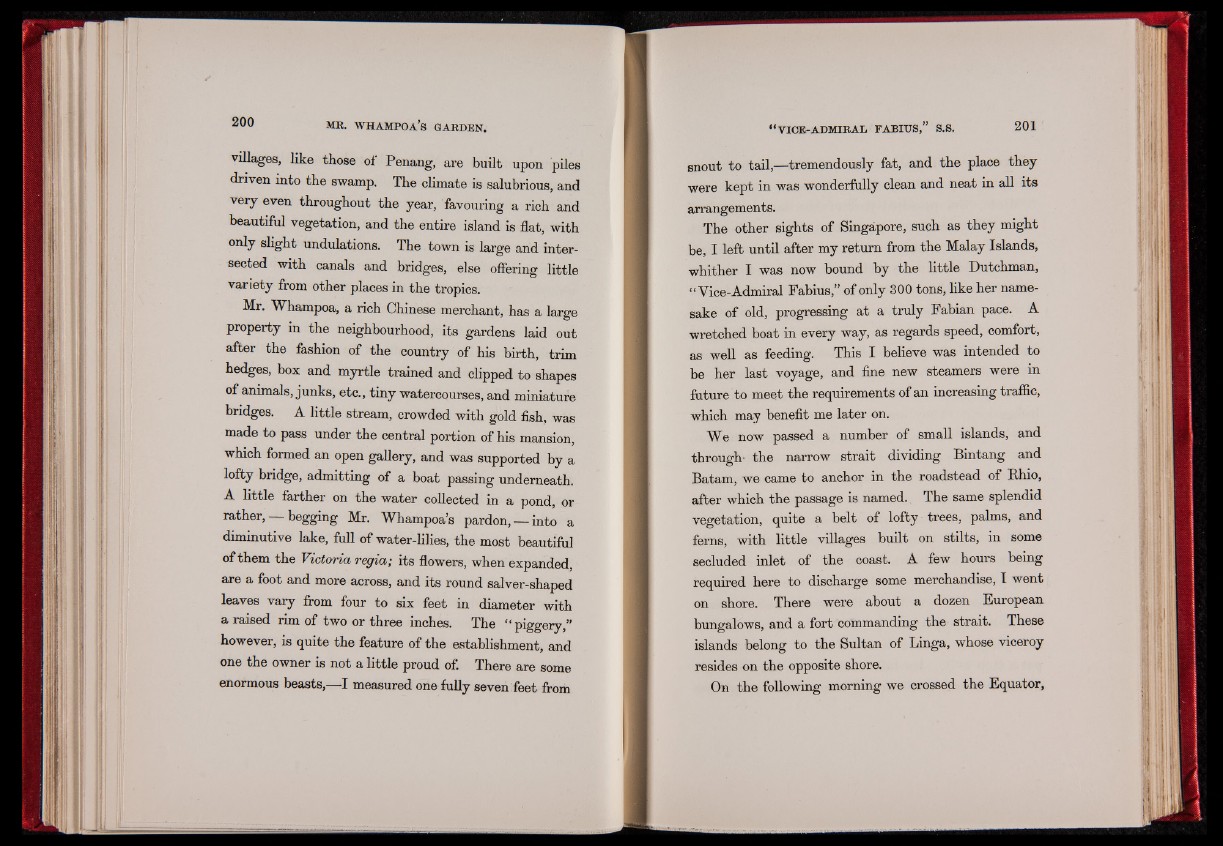
villages, like those of Penang, are built upon piles
driven into the swamp. The climate is salubrious, and
very even throughout the year, favouring a rich and
beautiful vegetation, and the entire island is flat, with
only slight undulations. The town is large and intersected
with canals and bridges, else offering little
variety from other places in the tropics.
Mr. Whampoa, a rich Chinese merchant, has a large
property in the neighbourhood, its gardens laid out
after the fashion of the country of his birth, trim
hedges, box and myrtle trained and clipped to shapes
of animals, junks, etc., tiny watercourses, and miniature
bridges. A little stream, crowded with gold fish, was
made to pass under the central portion of his mansion,
which formed an open gallery, and was supported by a
lofty bridge, admitting of a boat passing underneath.
A little farther on the water collected in a pond, or
rather, — begging Mr. Whampoa’s pardon, — into a
diminutive lake, full of water-lilies, the most beautiful
of them the Victoria regia; its flowers, when expanded,
are a foot and more across, and its round salver-shaped
leaves vary from four to six feet in diameter with
a raised rim of two or three inches. The “ piggery,”
however, is quite the feature of the establishment, and
one the owner is not a little proud of. There are some
enormous beasts,—I measured one fully seven feet from
snout to tail,—tremendously fat, and the place they
were kept in was wonderfully clean and neat in all its
arrangements.
The other sights of Singapore, such as they might
be, I left until after my return from the Malay Islands,
whither I was now bound by the little Dutchman,
“Vice-Admiral Fabius,” of only 300 tons, like her namesake
of old, progressing at a truly Fabian pace. A
wretched boat in every way, as regards speed, comfort,
as well as feeding. This I believe was intended to
be her last voyage, and fine new steamers were in
future to meet the requirements of an increasing traffic,
which may benefit me later on.
We now passed a number of small islands, and
through- the narrow strait dividing Bintang and
Batam, we came to anchor in the roadstead of Rhio,
after which the passage is named., The same splendid
vegetation, quite a belt of lofty trees, palms, and
ferns, with little villages built on stilts, in some
secluded inlet of the coast. A few hours being
required here to discharge some merchandise, 1 went
on shore. There were about a dozen European
bungalows, and a fort commanding the strait. These
islands belong to the Sultan of Linga, whose viceroy
resides on the opposite shore.
On the following morning we crossed the Equator,